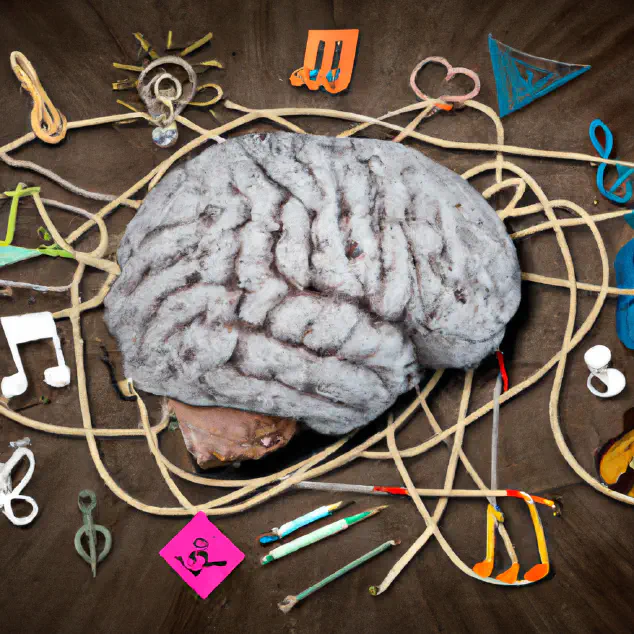
1. Make a Plan
Having a plan helps you stay focused and on track as you work towards your academic goals. Here are some steps you can take to create a plan for effective learning:
Establish clear goals
Start by identifying what you want to achieve. This will help you stay motivated and focused. Do you want to improve your grades, learn a new skill, or pass a certification exam? Whatever your goals may be, make sure they are specific, measurable, achievable, relevant and time-bound (SMART).
Assess your strengths and weaknesses
Identify the areas where you excel and where you need more work. This will help you allocate more time to the topics that need more attention.
Create a study schedule
Allocate time for studying each day or each week. Consider your other commitments and make sure you have enough time to cover all the topics you need to learn. Remember to schedule regular breaks to avoid burnout.
Break down the topics
Break down the topics you need to cover into smaller, manageable chunks. This will help you avoid feeling overwhelmed and make progress more achievable. Consider using a planner or calendar to keep track of your progress.
Get organized
Organize your study materials and create an environment that is conducive to learning. Make sure you have all the necessary textbooks, notes, and supplies. Clear your study space of distractions and keep it clean and tidy.
By following these steps and creating a plan, you’ll be able to approach your studies with more focus and purpose. This will help you achieve your academic goals and succeed both in school and in life.## 2. Active Learning
Active learning is a critical part of effective studying. Instead of just passively reading or listening to lectures, actively engage with the material in the following ways:
Ask Questions
Asking questions is a great way to actively engage with the material. Try to come up with questions as you read or listen to lectures. This will help you focus on important concepts and identify areas where you may need more clarification.
Take Notes
Taking notes is a crucial aspect of active learning. Not only does it reinforce your understanding of the material, but it also provides a valuable resource to refer back to when studying for exams. Be sure to write down key points and examples and organize your notes in a way that makes sense to you.
Create Diagrams and Mind Maps
Visual aids, such as diagrams and mind maps, can be incredibly helpful in understanding complex concepts. Organizing information in a visual way helps your brain make connections and see patterns, making it easier to remember and apply information later on.
Summarize Key Concepts
Summarizing key concepts is an effective way to solidify your understanding of the material. Take the time to distill complex ideas into concise summaries. Doing so can help you identify areas of weakness or confusion and focus your study efforts accordingly.
Overall, active learning is an essential component of successful studying. Incorporate these strategies to engage with the material more effectively and increase your understanding of key concepts.## 3. Practice Makes Perfect
To effectively learn any subject, it is important to apply the concepts learned in practice. Here are some ideas on how to apply the “Practice makes perfect” strategy effectively:
a. Regular practice sessions
Schedule regular practice sessions for each topic. Practicing at the same time each day can help create a routine, making it easier to stick to.
b. Use relevant exercises
Use exercises that are relevant to what has been learned. This helps reinforce learning and identify areas that need more work.
c. Participate in group activities
Participate in group activities or study groups. This allows you to practice with others and learn from different perspectives.
d. Try teaching someone else
Teaching someone else what you have learned is another great way to practice. It forces you to consolidate your knowledge and fill gaps in your understanding.
e. Use real-world examples
Use real-world examples to apply what you have learned. This helps to make the material more relevant and easier to understand.
Overall, practicing regularly and in various forms is key to effectively learning any subject. Don’t be afraid to make mistakes and learn from them along the way.
4. Feedback is Key
Effective feedback is essential to improve your learning experience. Incorporating feedback from others will identify areas that need improvement and help you grow as a student. Here are some subtopics to consider when it comes to feedback:
Seek Feedback from Different Sources
It’s important to receive feedback from different sources as it provides varying perspectives on your work. Feedback from fellow students, instructors, mentors, and experts in the field can provide valuable insights on your progress.
Use Feedback to Improve
Feedback is only useful if you use it to improve. After receiving feedback, take the time to reflect on it, and use it as a guide to further develop your skills. Consider using a feedback tracking system and setting goals to ensure you’re making progress.
Give and Receive Feedback Constructively
Feedback can be uncomfortable to give and receive at times, but it’s vital to keep your emotions in check when delivering feedback. Provide constructive criticism by pointing out areas that need improvement and offer suggestions for better solutions. Likewise, receive feedback positively by keeping an open mind and looking for opportunities to grow.
Create an Environment of Continuous Feedback
Make receiving feedback a regular part of your learning process. Consider regular check-ins with peers, mentors, or instructors and encourage others to provide feedback during group discussions or group projects. This can help create an environment of continuous feedback and improvement.
Incorporating feedback into your learning experience can be a powerful tool to accelerate progress. Take the time to seek, receive, and give constructive feedback, and you’ll be well on your way to achieving your academic goals.## 5. Believe in Yourself
When it comes to learning, having confidence in yourself is crucial. Here are some tips to help you believe in yourself:
-
Celebrate Your Achievements: Take the time to acknowledge and celebrate your accomplishments, no matter how small they may seem. This will help build your confidence and motivate you to keep going.
-
Turn Mistakes into Opportunities: Instead of seeing mistakes as failures, view them as opportunities to learn and grow. Analyze what went wrong and figure out what you can do differently next time.
-
Surround Yourself with Supportive People: It’s important to have a support system that encourages and believes in you. Whether it’s family, friends, or a study group, surround yourself with people who lift you up and help you stay motivated.
-
Visualize Success: Take a moment to imagine yourself achieving your goals. Visualizing success can help you stay focused and motivated, and it can also help alleviate anxiety or self-doubt.
-
Stay Positive: It’s easy to fall into a negative mindset when things get tough. Try to stay positive and focus on progress, even if it’s slow. Remember that learning is a process, and every step counts towards your goals.
By believing in yourself and staying motivated, you can overcome obstacles and achieve your academic goals.



